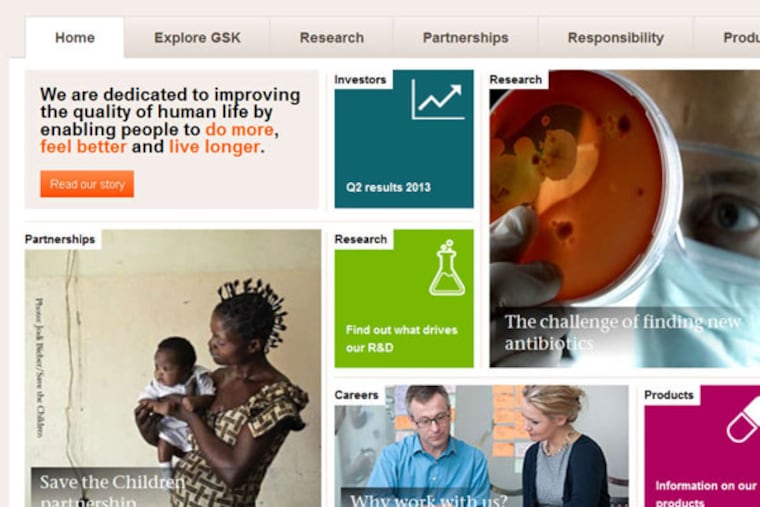Glaxo unit to work on public-private antibiotics research
A local unit of drugmaker GlaxoSmithKline has a central role in a $200 million public-private project announced Wednesday to develop antibiotics against biological terrorism and treat drug-resistant infections in health-care settings around the world.

A local unit of drugmaker GlaxoSmithKline has a central role in a $200 million public-private project announced Wednesday to develop antibiotics against biological terrorism and treat drug-resistant infections in health-care settings around the world.
The U.S. government will pay Glaxo $40 million in the first 18 months, and, if the project is on track, $160 million more over five years. Glaxo will contribute more of its own money to the project.
Glaxo is one of the few big pharmaceutical companies that still works on antibiotics. Others abandoned the field because they thought there was less profit potential. Antibiotics are used until an infection ends and drug companies would rather make medicine for chronic problems, such as diabetes or cholesterol, to increase sales.
In developed countries, including the United States, some antibiotics have been used so often bacteria have become resistant to them. In less-developed countries, where Glaxo has increased its presence, antibiotics are often in short supply.
"This is a worldwide problem," Glaxo's David Payne said of drug resistance. He leads Glaxo's antibacterial unit, which has about 30 people working in Upper Providence, Montgomery County. In this therapeutic area, he said, "the discovery [of effective medicines] is challenging and there can be a relatively low return."
Glaxo's agreement is with the U.S. Department of Health and Human Services' Biomedical Advanced Research and Development Authority (BARDA). The agency was created in part to help develop and buy "medical countermeasures," to use "against a broad array of public health threats, whether natural or intentional in origin."
Potentially lethal letters laced with anthrax and ricin are recent examples of bioterrorism, but the agency also is working on how to treat people after a nuclear or chemical attack.
"Glaxo has been a good partner, but some of the other large pharmaceutical companies have shied away from antibiotics," said Robin Robinson, director of BARDA. "We hope this is a way to bring larger pharma companies back into antibiotics so we have more competition. It helps with bioterrorism and public health."
Payne's group is one of Glaxo's "discovery performance units" created in 2009, when it reorganized research and development in hopes of generating results - or recognizing failures - sooner.
"One of the central theories of discovery performance units was to present a business plan and get funding," Payne said, "and then deliver medicines that are needed by patients."